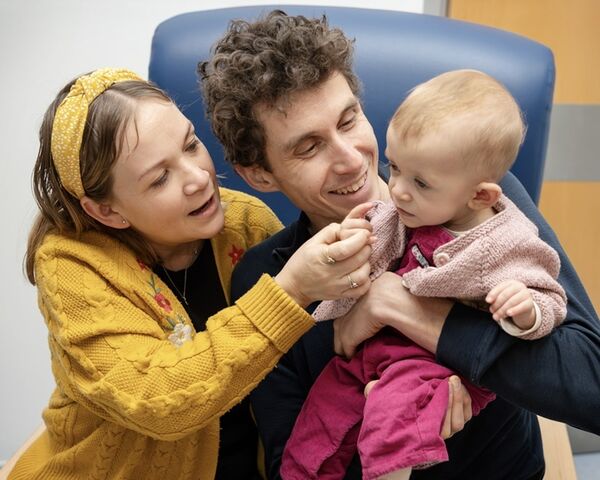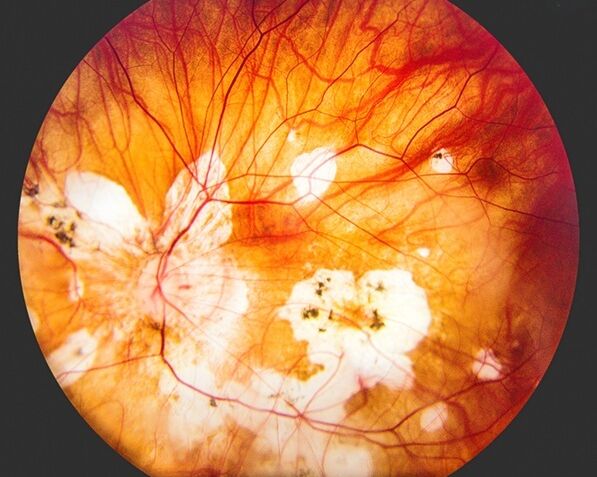The UK has sequenced 100,000 whole genomes in the NHS

Pioneering 100,000 Genomes Project reaches its goal and thanks all involved
Health Secretary Matt Hancock has today announced that the 100,000 Genomes Project, led by Genomics England in partnership with NHS England, has reached its goal of sequencing 100,000 whole genomes from NHS patients.
This ground-breaking programme was launched by then-Prime Minister David Cameron in 2012, with the goal of harnessing whole genome sequencing technology to uncover new diagnoses and improved treatments for patients with rare inherited diseases and cancer. The task was to make the UK a world leader within five years.
The 100,000 Genomes Project has delivered life-changing results for patients with one in four participants with rare diseases receiving a diagnosis for the first time, and providing potential actionable findings in up to half of cancer patients where there is an opportunity to take part in a clinical trial or to receive a targeted therapy.
To do this Genomics England worked with NHS England to create 13 NHS Genomic Medicine Centres (GMCs) to support the project, a state-of-the-art sequencing centre run by Illumina, Inc. and an automated analytics platform to return whole genome analyses to the NHS.
Genomics England and NHS England are extremely grateful to the 85,000 participants, 1,500 NHS staff, over 3,000 researchers, the National Institute for Health Research and the UK Government whose support and funding have been key to the success of this pioneering NHS transformation programme.
As a result the UK has become the first nation in the world to apply whole genome sequencing at scale in direct healthcare, as well as providing access to high quality de-identified clinical and genomic data for research aimed at improving patient outcomes.
The project has laid the foundations for a NHS Genomic Medicine Service, which will provide equitable access to genomic testing to patients across the NHS from 2019.
Sequencing the 100,000th genome is a major milestone in the route to the healthcare of the future. From Crick and Watson onwards, Britain has led the world in this amazing technology. We do so again today as we map a course to sequencing a million genomes. Understanding the human code on such a scale is part of our mission to provide truly personalised care to help patients live longer, healthier and happier lives.
I’m incredibly excited about the potential of this type of technology to unlock the next generation of treatments, diagnose diseases earlier, save lives and enable patients to take greater control of their own health.
Matt Hancock
Health Secretary
At launch the 100,000 Genomes Project was a bold ambition to corral the UK’s renowned skills in genomic science and combine them with the strengths of a truly national health service in order to propel the UK into a global leadership position in population genomics. With this announcement, that ambition has been achieved. The results of this will be felt for many generations to come as the benefits of genomic medicine in the UK unfold.
Sir John Chisholm
Chair of Genomics England
The sequencing of 100,000 whole genomes marks an extraordinary UK achievement that is transforming the application of genomics in our NHS. Genomics England will continue to analyse these genomes alongside life course clinical information to reveal answers for as many participants as possible and improve their NHS care. With the generous support of our participants, the NHS, the National Institute for Health Research and the Government we will continue to ensure the UK’s global leadership in genomic healthcare.
Professor Mark Caulfield
Chief Scientist at Genomics England
This achievement has only been possible because of the amazing commitment and contribution of NHS teams across the country and I would like to thank each and every one of them for rising to this challenge and excelling in its delivery.
The results, which will continue to be returned to patients, show how genomic medicine can transform lives, bringing quicker and better diagnoses and increasing the number of patients surviving cancer, and the opportunity now is for the NHS to turn this research into reality by introducing sequencing technology as part of our world-leading NHS Genomic Medicine Service.
Professor Dame Sue Hill
Chief Scientific Officer for England and Senior Responsible Officer for Genomics at NHS England
This is a fantastic milestone. Thanks to the dedication and hard work of the whole project team, patients and their families are starting to receive life-changing diagnoses. We look forward to seeing more results in the near future – for the rest of the project participants, and for the wider public who will soon benefit from genomic medicine in the NHS. We will also keep working with Genomics England to make sure they keep patients’ interests at the heart of all they do.
Jillian Hastings Ward
Chair of the National 100,000 Genomes Project Participant Panel
We congratulate Genomics England and the NHS for reaching this historic achievement and are honored to be part of it. The accomplishment of the 100,000th genome is only the beginning in many respects, but a significant step towards realizing the promise of genomic medicine to develop products for earlier detection and treatment of many rare diseases and cancers.
Francis deSouza
President and CEO of Illumina, Inc.
It has been a unique study to have been part of and a fantastic achievement on all fronts, really demonstrating that the UK is leading the way in genomic research towards personalised medicine. This milestone is testament to the hard work and dedication put in by all at National Institute for Health Research National Biosample Centre and our partners in Genomics England, the NHS GMCs and Illumina.
James Fenton
Project Manager at the NIHR National Biosample Centre – the facility that stores and processes samples for the 100,000 Genomes Project
END
Genomics England is wholly owned by the Department of Health & Social Care.
The 100,000 Genomes Project is mainly funded by the National Institute for Health Research and NHS England. The Wellcome Trust, Cancer Research UK and the Medical Research Council have also generously funded research and infrastructure in the programme.


